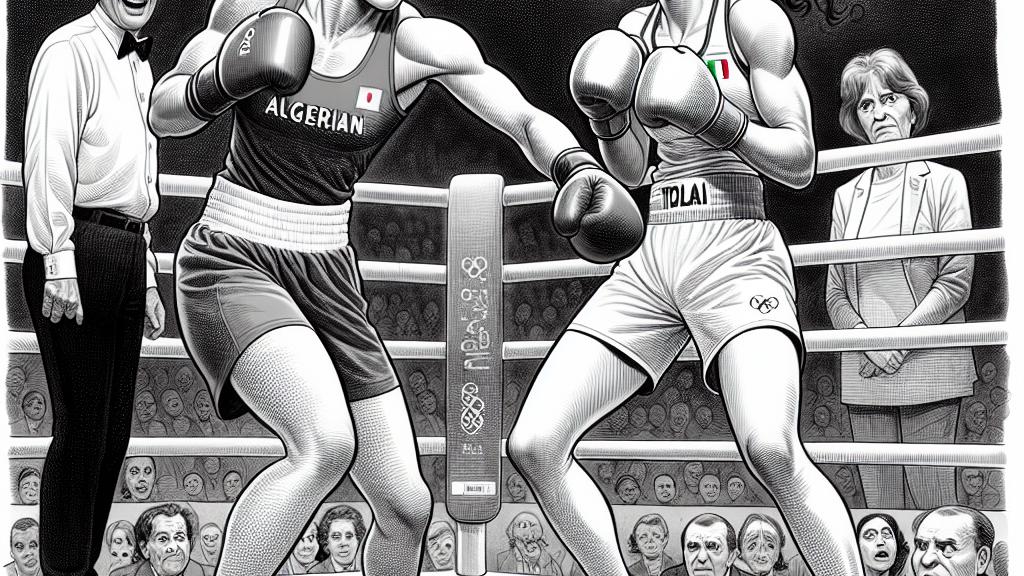Punching Through Controversy: The Imane Khelif Saga Unfolds!
Overview
- Imane Khelif's boxing match ignited a major controversy over gender eligibility at the Paris 2024 Olympics.
- Angela Carini withdrew from the bout, raising concerns about fairness in female sports.
- The IOC's guidelines on gender participation are now under intense scrutiny, demanding urgent reform.

A Momentous Olympic Match
During the Paris 2024 Olympics, the spotlight turned sharply on Algerian boxer Imane Khelif, whose match against Italy's Angela Carini became controversial almost immediately. Carini exited the ring in a state of distress just 46 seconds into the bout after experiencing excessive pain from Khelif's impactful punches. This sudden decision raised eyebrows, not only due to the short duration of the fight but also because it brought to the fore Khelif’s unusual biological makeup. Khelif, who was born with XY chromosomes—a trait that complicates traditional gender classifications—now faces scrutiny in a sport that prides itself on fairness and equity, plunging the world of athletics into a renewed debate over gender identity and inclusion.
Intense Public Response and Criticism
The abrupt end to the fight quickly transformed into widespread public discussions, particularly regarding the implications of Khelif’s intersex status. Many former and current athletes expressed concerns over the fairness of allowing Khelif to compete against female athletes, with some calling for stricter gender eligibility criteria. Two-time Olympic gold medalist Claressa Shields publicly condemned the situation, emphasizing that biological women should compete against one another to preserve the integrity of women's sports. The reactions from various stakeholders reflect deep-rooted anxieties about equitable competition and raise vital questions about how sports organizations, including the International Olympic Committee (IOC), navigate the complexities of identity in athletic competition.
The IOC's Stand Amidst Ongoing Debate
Indefense of their policies, the IOC reiterated that Khelif met all the necessary eligibility criteria, as determined by her official documentation. They asserted their commitment to inclusivity, emphasizing that all athletes should have the right to participate in sports regardless of gender identity. However, the clamor for clearer guidelines is growing louder, with advocates calling for urgent reforms to ensure fairness in competitions. With the controversies surrounding Khelif's situation likely to impact future policies, the IOC may need to reconsider its approach to gender eligibility. The situation stands as a reminder of the substantial work still required to balance inclusion and competitive fairness in the evolving landscape of sports.

Loading...